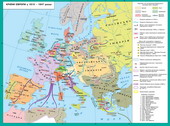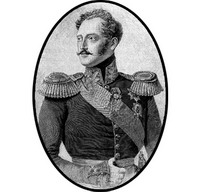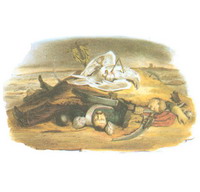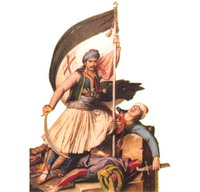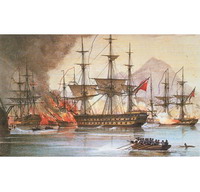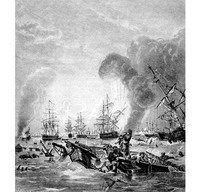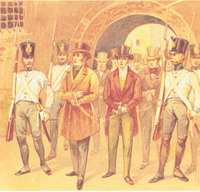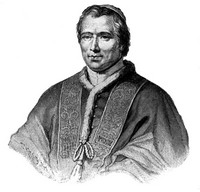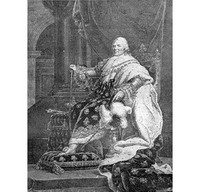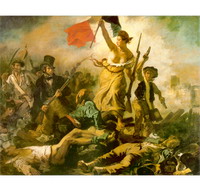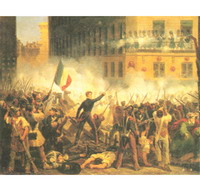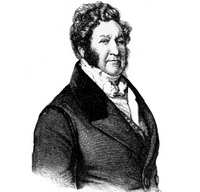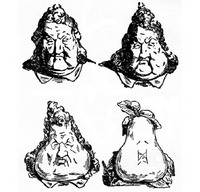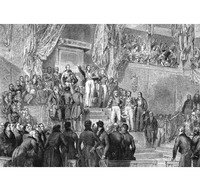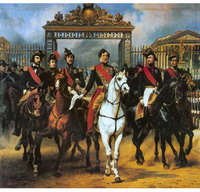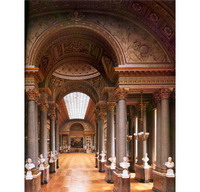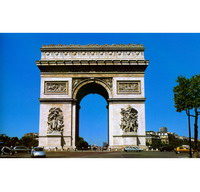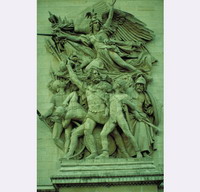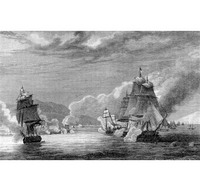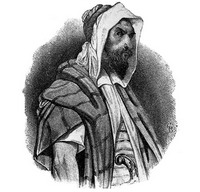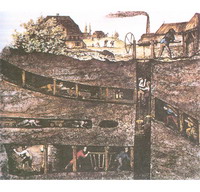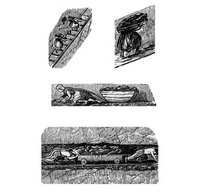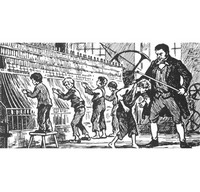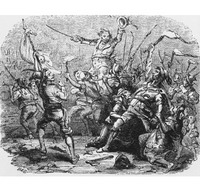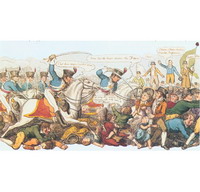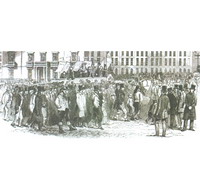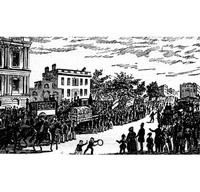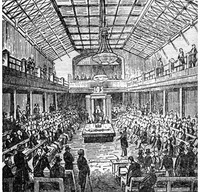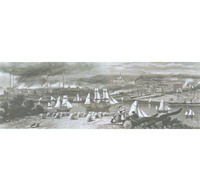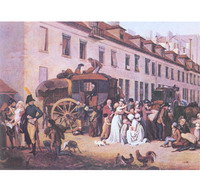period after the Napoleonic wars and the establishment in Europe "Vienna System" called the era of political reaction. At the time of determining for most European politicians have been efforts to preserve and consolidate the old, obsolete order. Monarchs, aristocrats and Catholic clergy, all those who lost property in the revolutionary era and power, is now trying to turn public life in that condition as it was in 1789
XIX century. in European history called the "era of nationalism. French Revolution and Napoleonic wars too caused a wave of rising nationalism and national liberation struggle in almost all European nations, especially those who attacked the French army. Since distribution was becoming convinced that every nation has the right to establish their own national state. This idea inspired by the then members of secret societies of the opposition National Liberation direction.
Germany after the Congress of Vienna remained politically fragmented country. Created for his solution to the German alliance existed only on paper, because the government did not have a single, common law and the armed forces.
In most German states prevailed reaction restored feudal duties peasants. In King of Prussia has not fulfilled its promise to give the constitution. Approved earlier constitutions in many German states were abolished.
period 1815-1847 he was in Germany, sometimes becoming forces that stood for overcoming the political disintegration of the country. The dream of a unified state, which will be provided with the inalienable rights of man and citizen is crucial to the German nationalist movement.
result of persecution and repression of many German patriots had to leave their country. 1834 in Switzerland have a secret society of "Young Germany". Its purpose was to fight for the unification of Germany, a republic, the introduction of the constitutional system of guarantees of basic political rights.
multinational Austrian Empire in the rapidly developing national movements. Unlike Germany and Italy, where the movements aimed at reunification of the country, the peoples of the Austrian Empire fought for the right to our own national self-determination.
first began to oppose the right to decide their fate Vienna Hungarians. 1825 Austrian emperor was forced to allow Hungary to convene separate state charges. National Movement of the Slavic peoples of the Austrian Empire rozpochynalysya struggle for cultural revival of the Slavs. Primarily it affects the Czechs and Croats, who were dissatisfied with the policy encouraged Vienna ponimechennya. Now, their languages, which previously had only spoken, came up newspapers and books. Actively developed in this period the Ukrainian national movement in Transcarpathia and Eastern Galicia.
Revitalization national liberation movements in Italy caused a revolution 20-30's. Revolution swept the south of Italy, Neapolitan kingdom. King was forced to sign the constitution and agree to convene parliament. However, the decision of the Holy Union force of Austrian troops restored absolute monarchy in Naples and savagely cruelly with the rebels.
meantime the revolutionary movement spread Sardinian kingdom. The rebels Sardinian army officers put forward the slogan of national independence throughout Northern Italy. It was established a provisional government and proclaimed the constitution. But the Austrian army and put down a revolution here.
1831 in Marseilles, the Italian patriot Giuseppe Madzini created a "young" Italy "- the only zahalnoitaliysku national revolutionary organization. He formulated the principle of "every nation - state" and began a struggle for its realization. "Young Italy" was aimed at unification of Italy in one independent democratic republic.
in France after the Hundred Days "restored Bourbon dynasty. Therefore, this period is called the restoration (1815-1830). However Bourbon policy caused resentment in society, and that caused the July 1830 revolution R. and fall of dynasties. New mode of July Monarchy (1830-1848) was also swept the next revolution. Throughout this time on the political system, France has remained a constitutional monarchy.
In many European countries for the era of the Napoleonic Wars, which coincided with the beginning of industrialization, urbanization and demographic growth, began a period of economic decline. The general dissatisfaction had different forms of expression: the peasant unrest, food riots, destruction of machinery by workers who feared dismissal, general strikes, petitions and rallies in support of political change, etc..
In the UK, despite the social unrest and difficulties associated with the industrial revolution, the revolution did not happen. The country has kept unchanged its political institutions. Most significant form of protest in the country was chartism, which supporters of the House of Commons demanded greater representation office.
 English
English
